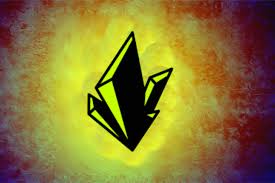Long article by V God: What are some non-financial use cases of blockchain?
Article by V God: Non-financial use cases of blockchainFounder of Ethereum, Vitalik Buterin, published a blog post titled “What are the Non-Financial Use Cases of Blockchain?” expressing his strong support for the trend of using blockchain for non-financial applications. In the article, he listed 8 non-financial use cases where blockchain can be utilized, such as changing and recovering user account keys, and modifying and revoking authentication. He stated that the two non-financial applications he is most confident in so far are interoperability with other blockchain applications and account management. This article is translated into Chinese by Odaily Planet Daily.
Non-financial applications of blockchain: 1) Changing and recovering user account keys. One of the biggest challenges in encrypted account systems is the issue of key changes. Blockchain can manage accounts in a decentralized way and add timestamps to key change messages to determine their order. My preferred solution is multi-signature and social recovery wallets. 2) Modifying and revoking certifications. Blockchain can be used for degree certifications and prevent them from being used after being revoked. A hybrid solution can be used: the initial degree can be set as an offline signature message, and revocation can occur on the chain. The cost of running a server for revoking certificates is not high for universities, but it can be a burden for other small organizations or individuals. Blockchain technology can be used to replace running servers, and the cost is becoming lower and lower. 3) Negative reputation. Offline signature cannot handle the field of negative reputation. The proof can be written on the chain and encrypted, and zero-knowledge proof can solve privacy issues. Adding another negative reputation proof can revoke the previous proof. Positive reputation can revoke negative reputation. 4) Devoted to scarcity (scarcity proof). Another example of the value of blockchain is issuing limited proofs. By publishing a single Merkle root and maximum count on the chain, you can submit a limited number of proofs.
4) Public knowledge, which is usually important for collaboration. One possible method to achieve this goal is to have someone start a “commitment pool” around a specific statement and invite others to submit hash values (initially private) indicating their agreement. Only if enough people participate within a certain timeframe do all participants need to publicly state their position in their next chain message. This design can be achieved through a combination of zero-knowledge proofs and blockchain.
- Interpreting Gensyn: Blockchain AI Computing Protocol that Raised Over $50 Million in Funding Led by a16z
- US lawyers discuss the future of the SEC’s case against Binance and Coinbase: the outcome may be very different
- Vitalik: To achieve large-scale adoption, Ethereum must undergo three transitions: L2, wallets, and privacy.
6) Interoperability with other blockchain applications.
7) Open source metrics. Not all data should be on the chain, but making some data public in a commonsense way can help improve the community’s readability without causing disparities in data access that could be abused for centralized control.
8) As a data storage, the trade-off is not only cost but also privacy in extreme cases where keys or passwords are cracked. Sometimes, privacy is only important to a certain extent, and it is better to ensure that data can always be reliably accessed rather than worry about accidental privacy losses caused by leaked keys or quantum computing.
Reference: https://www.odaily.news/post/5187728
We will continue to update Blocking; if you have any questions or suggestions, please contact us!
Was this article helpful?
93 out of 132 found this helpful
Related articles
- Web3 without AI has no soul. How ZKML Reshapes the Relationship Between AI and Blockchain
- Blockchain’s Ambition: Anti-Keynesianism, Public Life, and Transhumanism
- Evening Must-read | How Blockchain and Ethereum are Changing the World
- Interpreting the Performance of 14 L1 Public Chains in Q1: Stacks Emerges as Dark Horse, Network Usage Rate Generally Decreases
- Understanding the Equity Staking Mechanism of Blockchain, Oracle, and DeFi in one article
- How to find the address of a whale that earned 50 times in 3 days using existing resources?
- Analysis of Beijing’s Internet 3.0 White Paper (Full Text Included): Separating from Web 3.0, Focusing on Artificial Intelligence and Metaverse






